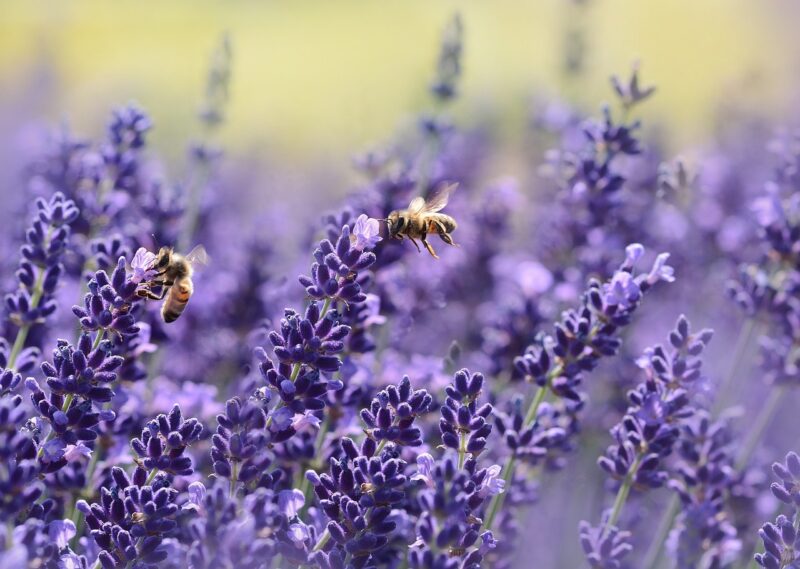The Role of Bees in Shaping Human Civilization and Agriculture
November 17, 2024

Bees, those small, buzzing insects, have played a monumental role in shaping human civilization and agriculture. Their contributions to food production, biodiversity, and even cultural symbolism are monumental yet often overlooked. Understanding the intricate relationship between bees and humans is essential for appreciating our shared existence and the fragility of our ecosystems.
1. A Brief History of Bees and Humans
Bees have been part of the Earth’s ecosystem for millions of years, but their relationship with humans dates back thousands of years. Evidence of human interaction with bees can be traced to ancient civilizations:
- Ancient Egypt: Ancient Egyptians revered bees. They regarded honey as a symbol of royalty and used it in various religious ceremonies. Tombs of pharaohs contained honey pots that were meant to nourish them in the afterlife.
- Greek and Roman Civilizations: Bees were honored by both Greeks and Romans. Greek philosopher Aristotle described bee behavior and emphasized their importance in agriculture. Meanwhile, the Romans coined the term “Apis” for bees, which is the root for all scientific names related to bees today.
- Middle Ages: Beekeeping flourished during the Middle Ages, where monks meticulously managed hives, contributing to advances in honey production and the hybridization of bee species.
As civilizations evolved, so did the methods and practices surrounding beekeeping, leading to a nuanced partnership between bees and agriculture.
2. Bees as Pollinators: The Backbone of Agriculture
The most significant function of bees in relation to agriculture is their role as pollinators. Pollination is the process where pollen is transferred from the male part of the flower to the female part, enabling the fertilization necessary for fruit and seed production. Here are some impressive statistics that highlight the importance of bee pollination:
- Approximately 75% of the world’s food crops benefit from pollination, primarily by bees.
- Crops that thrive through bee pollination include fruits, vegetables, nuts, and seeds. Notably, almonds rely entirely on bee pollination to bear fruit.
- The economic contribution of bees to global food production is estimated to be around $235 billion annually.
Without bees, many of the staple foods we rely on would become scarce, significantly altering global diets and economies. Furthermore, the decline in bee populations poses a substantial risk to food security.
3. The Decline of Bee Populations: A Call to Action
Recent years have seen alarming declines in bee populations worldwide due to various factors, including:
- Pesticides: The widespread use of harmful pesticides has been linked to bee deaths and colony collapse disorder.
- Habitat Loss: Urban development and agricultural expansion have led to significant habitat destruction, further threatening bee populations.
- Climate Change: Rising temperatures and unpredictable weather patterns disrupt bee foraging patterns and reproductive cycles.
Conservation initiatives, sustainable farming practices, and public awareness campaigns are crucial for reversing the decline in bee populations. Simple actions, such as planting bee-friendly flowers and reducing pesticide use, can significantly impact local bee populations.
4. Cultural Symbolism and the Future of Bees
Bees also hold a significant cultural symbolism across various societies:
- Symbol of Hard Work: Bees are often revered for their diligence and efficiency, embodying the principles of hard work and community cooperation.
- Representation of Harmony: In many cultures, bees symbolize harmony and the interconnectedness of nature, emphasizing important life lessons about cooperation and balance.
- Honey as Medicine: Historically, honey has been used as a natural remedy for various ailments, showcasing bees’ contributions beyond agriculture.
As society becomes increasingly aware of environmental issues, bees are emerging as icons for sustainability efforts. The future of agriculture and human civilization increasingly hinges on recognizing the critical role of these pollinators.
5. How to Support Bee Populations
Supporting bee populations requires collective action. Here are some ways you can contribute:
- Plant Bee-Friendly Gardens: Choose a variety of native flowers that bloom at different times throughout the year to provide sources of nectar and pollen for bees.
- Avoid Pesticides: Opt for natural pest control methods to minimize harm to bee populations.
- Support Local Beekeepers: Purchase honey and beeswax products from local beekeepers to encourage sustainable beekeeping practices.
- Advocate for Policies That Protect Bees: Support legislation that promotes organic farming and limits harmful pesticide use.
Each small action can collectively create significant change, ensuring that future generations continue to benefit from the incredible contributions of bees.
Conclusion
Bees are integral to the health of ecosystems and the success of human agriculture. Their role as pollinators has shaped civilizations, provided sustenance for countless cultures, and continues to be essential in modern food production. As we face the challenges of declining bee populations, it is imperative to take action for their conservation. By recognizing their importance and advocating for sustainable practices, we can ensure that bees continue to thrive and support our world’s agricultural needs well into the future.







